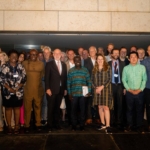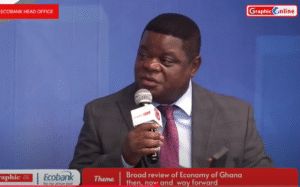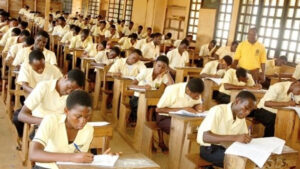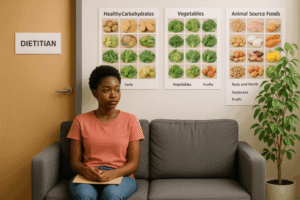
A delegation of 32 Dutch agribusiness leaders from 19 companies is embarking on a high-impact trade mission aimed at strengthening Dutch-Ghanaian collaboration in Ghana’s burgeoning horticultural sector.
The mission, which will be led by the Dutch Vice Minister of Agriculture, H.E. Mr Marten van den Berg, will take place from Monday 26th to Wednesday 28th May 2025.
Hosted by the Embassy of the Kingdom of the Netherlands in Ghana in partnership with the Netherlands-Africa Business Council (NABC), the mission convenes companies, government institutions, and knowledge organisations from both countries.
Its objective is to explore business opportunities, foster sustainable trade, and build partnerships across the horticultural value chain.
The visit marks a significant milestone in the Netherlands’ ongoing commitment to integrating development cooperation with private sector engagement in Ghana. Through business matchmaking sessions, site visits, and policy dialogues, the mission aims to:
- Stimulate interest among Dutch businesses to invest in Ghana’s growing horticulture sector;
- Showcase how development cooperation contributes to an improved business climate; and
- Identify challenges businesses face when considering investment in Ghana, using those insights to inform Dutch agricultural policy.
In his address at the Horticulture Trade Mission Reception at the Dutch Embassy in Accra, Mr Marten van den Berg remarked, “This networking event exemplifies how collaboration comes to life, with so many organisations and institutions from both Ghana and the Netherlands coming together, including robust government-to-government engagement. Our shared goal is to deepen this partnership and unlock new opportunities for sustainable development.”
The Netherlands Ambassador to Ghana, H.E. Mr Jeroen Verheul, added, “Within this broader partnership, our focus for trade and investment lies particularly in horticulture and cocoa—two sectors where Dutch expertise and Ghanaian potential are strongly aligned. Through strategic programmes and private initiatives, we seek to strengthen value chains, support innovation, and create long-term opportunities for businesses in both countries.”
High-level engagements and practical collaboration
Highlights of the mission include:
- A business reception bringing together Ghanaian government officials and key stakeholders in horticulture and trade.
- Site visits to leading horticultural enterprises in the Volta Region, such as Iribov and Fruitmaster Greenhouse;
- A Farmer Field Day, organised by Ghanaian smallholder farmers, the Horticultural Business Platform, and Dutch agricultural firms operating in Ghana.
These activities will spotlight the impact of Dutch expertise in seed development, sustainable greenhouse production, cold-chain logistics, agri-financing, and vocational training, especially in promoting farming as a business to students.
A Business-to-Business (B2B) matchmaking session will be held, where 40 Ghanaian institutions and firms will be connected to members of the Dutch delegation.
Furthermore, a revised Memorandum of Understanding (MoU) for the Agricultural Working Group will be signed between Ghana’s Minister for Food and Agriculture, H.E. Eric Opoku, and Vice Minister Marten van den Berg. This signing represents a renewed commitment to shared goals and ongoing cooperation in agricultural development.
The first Agricultural Working Group meeting of the year will also serve to officially inaugurate the Technical Working Groups, which will focus on three key areas: seeds, agribusiness, and cocoa.
A catalyst for investment and innovation
This mission is not solely about trade, it seeks to build lasting relationships. The Netherlands believes that fostering a stable and inclusive business environment through development cooperation ultimately enhances investment outcomes.
First-hand insights from both Dutch and Ghanaian stakeholders are essential to formulating aligned and effective policies.
Dutch companies will be encouraged to tap into Ghana’s dynamic agricultural sector, contributing to innovation, job creation, and food security. The initiative also reinforces the Netherlands’ role as a reliable, long-term partner in Ghana’s agricultural transformation.
Speaking at the reception, Vice Minister van den Berg noted, “Dutch farmers have set high benchmarks for productivity, efficiency, and innovation—building an agrifood sector that drives economic growth and enhances food security. Ghana also recognises the value of agricultural innovation. Collaboration, therefore, is crucial.”
Ambassador Jeroen Verheul echoed this sentiment, “This trade mission—comprising 19 Dutch companies—reflects our shared ambition to deepen commercial ties and explore new avenues for joint value creation. The Netherlands values partnerships rooted in local realities, aligned with national priorities, and grounded in mutual benefit. Ghana is not just an investment destination, but a strategic partner in achieving inclusive and sustainable development.”
HortiTrade: The Netherlands and Ghana in numbers
The timing of this mission is particularly significant. In the face of climate change, population growth, and rapid urbanisation, improving agricultural productivity and sustainability is now central to policy discussions.
Agriculture accounts for 22.2% of Ghana’s GDP and employs 40% of the workforce. Despite this, local production of staples such as tomatoes, peppers, and onions continues to lag behind rising demand. Moreover, there is an increasing urban appetite for nutritious and high-value crops such as cucumbers, carrots, and cabbage.
Ghana’s horticulture sector is therefore emerging as a major growth area, recording a 10% growth rate in 2024, well above the overall agricultural growth of 3%.
Despite the fact that 80% of sown seed in Ghana still originates from informal seed systems, imports of Dutch quality seeds have risen sharply, up 55% year-on-year, from €1.8 million in 2023 to €2.8 million in 2024. Ghana is now the second-largest importer of Dutch horticultural seeds in West Africa.
Nonetheless, the country still relies heavily on fresh fruit and vegetable imports, emphasising the need for deeper collaboration beyond input supply to the development of the full horticultural value chain.
As the second-largest agricultural exporter in the world, the Netherlands boasts a private sector filled with global leaders in cutting-edge agriculture. The integration of Dutch expertise and Ghanaian opportunity presents a compelling win–win proposition for sustainable agricultural transformation.
This is particularly relevant in light of the recently launched Feed Ghana Programme, inaugurated by President John Dramani Mahama on 11th April 2025.
The initiative aims to enhance domestic vegetable production through backyard and community gardening, promote institutional farming to empower youth, and revitalise the country’s poultry sector.
The Netherlands is already active in Ghana’s education sector, working with tertiary and agricultural colleges to promote “farming as a business” as part of their horticultural curricula, training over 2,000 students to date.
Past joint initiatives such as Ghanaveg, Hortifresh, and the Community Garden Project in Adenta have successfully trained over 1,000 home gardeners in vegetable cultivation and entrepreneurship.
In the Brong Ahafo Region, Dutch partnerships have also trained nearly 10,000 farmers in sustainable agricultural practices.
The current trade mission builds on these achievements, providing a platform for renewed investment and innovation in Ghana’s horticultural sector.






